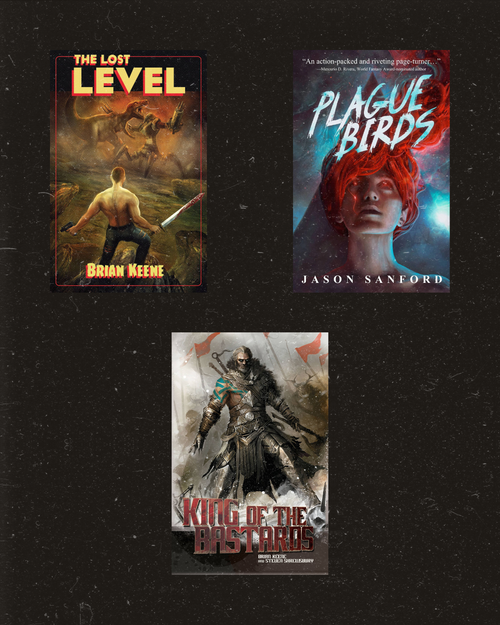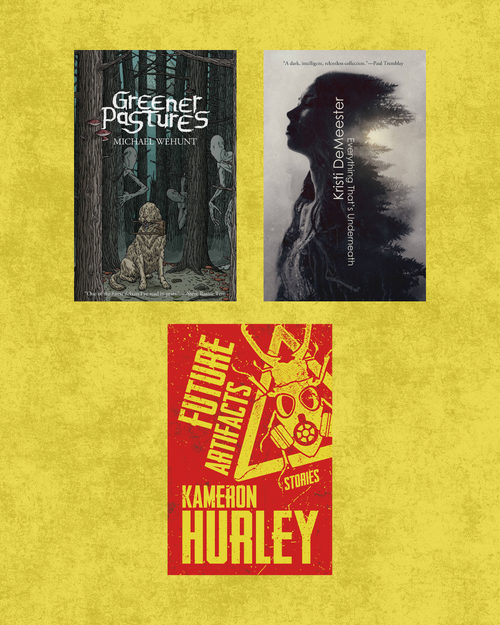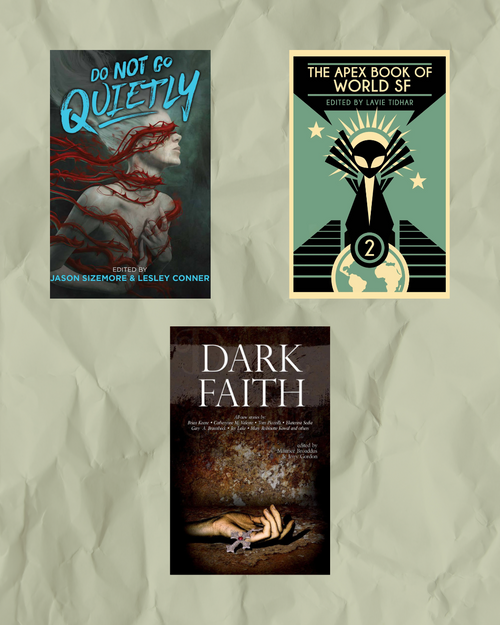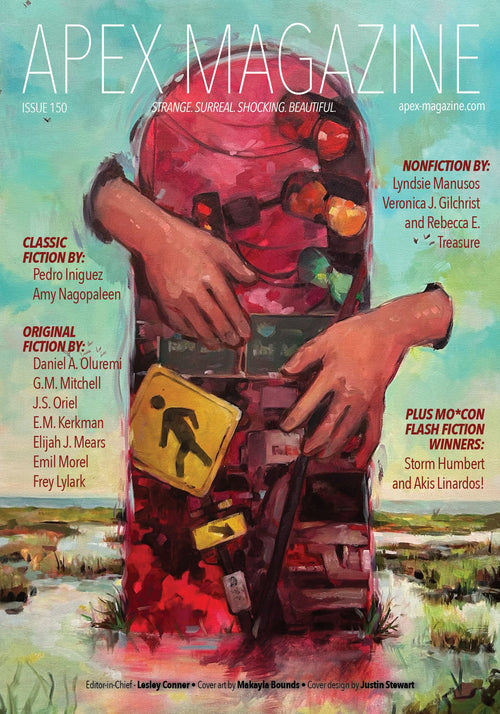by guest author Cristina Jurado
Since my husband is Lebanese and we have been living in the United Arab Emirates for the past thirteen years, I want to share with you some of my favorite books by Arab authors. They may not be known by Western audiences but discovering new voices from different literary traditions fits within the spirit of Apex. So, here we go.
The very first book you need to read is Utopia from the late Egyptian author Khaled Ahmed Tawfik. In a near future version of Cairo, young, rich, spoiled teens venture outside the walls of their well-guarded compounds to hunt people for fun. This chilling account of the excesses of capitalist self-centered elite allows Westerners to understand some of the constrictions of Egyptians in modern times.
Iraqi journalist Ahmed Saadawi published Frankenstein in Baghdad in 2014, a novel awarded the The International Prize for Arabic Fiction (IPAF). Translated by Jonathan Wright, the story echoes Mary Shelley’s horror myth with a twist. In a Baghdad destroyed by war, someone hopes to create a full body out of different parts of the cadavers he encounters, so it can receive a proper burial according to Muslim tradition. But something goes wrong when the body disappears and an unknown figure seeking revenge is seen wandering the streets.
One cannot but think of The Trial by Franz Kafka when reading The Queue by Egyptian doctor Basma Abdel Aziz. In this satirical novel, Abdel Aziz depicts the absurd and abusive bureaucratic processes of an imaginary Middle Eastern State.
Heaven on Earth by Jordanian author Fadi Zaghmout is a provocative biopunk novel that explores the consequences of non-aging technology widely available to society. Death is eliminated from the human equation, and the right to give birth is controlled. Who inherits that right, after someone willingly choses the unpopular option of dying, carries conflict amidst traditional families.
In 2015 Algerian writer Boualem Sansal won the Grand Prix du Roman de l'Académie Française for 2084: The End of the World. In this story, Sansal portraits a dystopian Orwellian future in which religious extremists establish an oppressive caliphate where autonomous thought has been banned.
The Book of Disappearance by Palestinian author Ibtisam Azem, translated by Sinan Antoon, has been labeled by many as Arab magic realism. The plot is simple but provocative, following the lives of Israelis living in Tel Aviv where, suddenly, all Palestinians disappear at once. This mysterious event triggers unprecedent consequences and explores themes like the influence of memory.
From editor Basma Ghalayini, Palestine +100 is an anthology containing twelve stories by Palestinian authors that imagine their land a hundred years after the start of the Israeli occupation. It features the works of Talal Abu Shawish, Tasnim Abutabikh, Selma Dabbagh, Emad El-Din Aysha, Samir El-Youssef, Saleem Haddad, Anwar Hamed, Majd Kayyal, Mazen Maarouf, Abdalmuti Maqboul, Ahmed Masoud and Rawan Yaghi, and translated by Raph Cormack, Mohamed Ghalaieny, Andrew Leber, Thoraya El-Rayyes, Yasmine Seale and Jonathan Wright.
In sync with the previous book, Iraq +100 also offers the vision of ten Iraqi authors that imagine their country a hundred years after the American and British occupation. Edited by Hassan Blasim, it includes stories by Hassan Abdulrazzak, Ibrahim Al-Marashi, Zhraa Alhaboby, Ali Bader, Hassan Blasim, Mortada Gzar, Jalal Hasan, Diaa Jubaili and Khalid Kaki. The translations were provided by Jonathan Wright, Elisabeth Jaquette, Andrew Leber, Katharine Halls, Emre Bennett, Adam Talib, and Max Weiss.
The last book I’m recommending is not by an Arab author but is about them: Arabic Science Fiction. Ian Campbell, Assistant Professor of Arabic and Comparative Literature at Georgia State University, offers an in-depth account of the origins of this genre in the Arabic world from a postcolonial perspective, and analyzes its particularities.
Thanks to Cristina Jurado for joining us!












